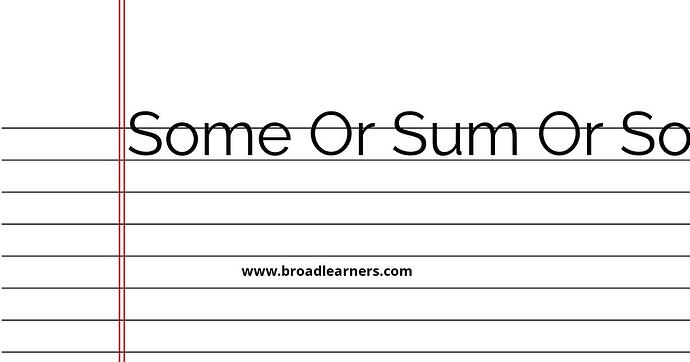'Some', 'sum', and 'some' are commonly confused words in English grammar. Understanding the difference between 'some', 'sum', and 'some' is important to use them correctly in written and spoken English.
'Some' is a determiner that is used to indicate an indefinite quantity or number of something. It is used to refer to an unspecified amount or a portion of a whole.
'Sum' is a noun that refers to the total or the result of adding numbers together. It is used in mathematical calculations or when referring to the total amount of something.
'Some' is also a pronoun that can be used to refer to an unspecified or unknown person or thing.
Let's take a closer look at the meanings and usage of 'some', 'sum', and 'some'.
| 'Some' | 'Sum' | 'Some' | |
|---|---|---|---|
| The word 'some' is used as a determiner to indicate an indefinite quantity or number of something. | The word 'sum' is a noun that refers to the total or the result of adding numbers together. | The word 'some' is also a pronoun that can be used to refer to an unspecified or unknown person or thing. | |
|
|
|
To remember the difference between 'some', 'sum', and 'some', it can be helpful to understand their specific meanings and usage.
Here are some examples of correct usage:
- I have some apples in the basket. (referring to an unspecified quantity of apples)
- What is the sum of 10 and 15? (referring to the total of the numbers 10 and 15)
- Somebody called you while you were out. (referring to an unknown person who called)
Remembering the correct usage of 'some', 'sum', and 'some' will improve your grammar and communication skills.
